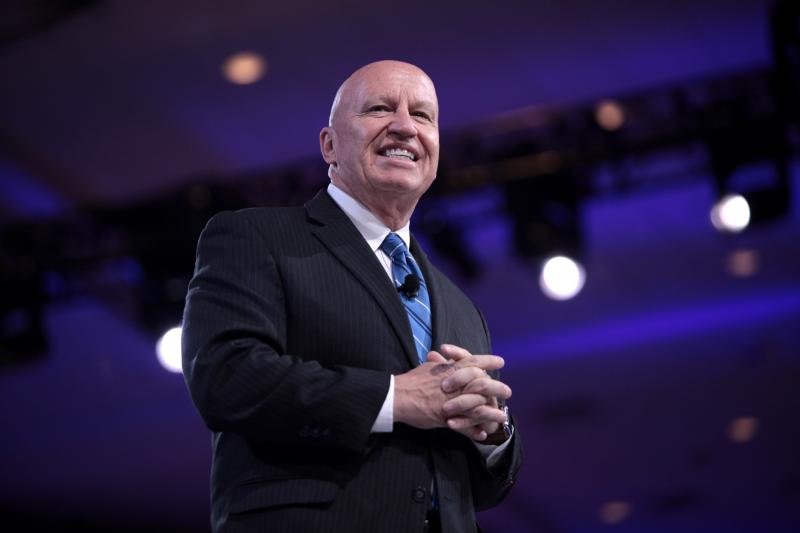
Yesterday, the House Ways and Means Committee held a hearing exploring Biden’s plan to raise taxes by $3.5 trillion for new “infrastructure” spending. During this hearing, entitled “Leveraging the Tax Code for Infrastructure Investment,” House Republicans pointed out the main ways Biden’s tax increases would harm working families and small businesses.
While Democrats touted their support for lavish green energy tax credits and attempted to convince the American people that their tax hikes would only be felt by the “ultra-rich,” Republican members shed light on the reality of the plan: it will hurt job growth, small businesses, working families, and hardly contains real infrastructure spending.
Biden’s tax hikes would harm workers as the economy recovers from the pandemic.
Ranking Member Kevin Brady (R-Texas) explained how Biden’s infrastructure plan is comprised, not only of wasteful spending, but of crippling tax hikes:
“As bad as the wasteful spending is, worse-yet, [the infrastructure plan] is poisoned with crippling tax increases that sabotage America’s job recovery, hurts working families and main street businesses, and drives U.S. jobs overseas. We cannot fund infrastructure on the backs of American workers… Coming out of a pandemic, that is the last thing we need right now. No president has ever raised taxes on businesses to recover from an economic crisis.”
American workers bear a significant portion of the cost of higher corporate taxes. Numerous studies have found that between 50 percent and 70 percent of the corporate tax is borne workers, with the remaining being borne by consumers through higher prices and shareholders. In this way, Rep. Brady is correct in saying that these tax increases would sabotage job recovery and send jobs overseas.
Further, American voters share Rep. Brady’s sentiment: coming out of a pandemic, tax hikes are the last thing this nation needs. According to a poll conducted by HarrisX and commissioned by Americans for Tax Reform, 80 percent of voters say that now is not the right time to raise taxes because many businesses and individuals have not yet recovered. Only 20 percent of voters say now is the right time to raise taxes for new spending projects.
Family-owned businesses and entrepreneurs would be harmed by the second death tax and capital gains tax hike.
Both Rep. Adrian Smith (R-Neb.) and Rep. Jason Smith (R-Mo.) also explained how doubling the capital gains tax and repealing step-up in basis, thus creating a second death tax, would hurt investment, family-owned businesses, farms, and other small businesses.
Biden’s repeal of stepped-up basis means that Americans will be forced to pay a capital gains tax on decades of “gains” that are actually just inflation. Because many family-owned businesses are asset rich but cash poor, under the current law families already have to liquidate equipment, land, and other assets in order to pay the Death Tax. The second death tax will compound this problem, forcing family-owned businesses to sell a significant portion of their business or go into significant debt to pay their tax liability.
The capital gains tax creates a lock-in effect, discouraging investors from investing in small start-up companies in an effort to delay paying a steep tax. Increasing the tax will compound this effect and increase the cost of capital, decreasing new investment. In turn, this will harm business creation, business expansion, entrepreneurship, and threaten jobs and wages.
The President’s “infrastructure” plan contains little infrastructure spending.
Later in the hearing, Rep. Vern Buchanan (R-Fla.) made it clear that Biden’s plan hardly includes real infrastructure spending:
“We agree the crumbling state of our nation’s infrastructure must be addressed, but what we disagree on is what is infrastructure and how to pay for it. The President’s infrastructure plan focuses on anything but infrastructure… Green energy tax credits for people buying a Tesla is not infrastructure.”
According to some estimates, less than 13 percent of the spending plan is spent on traditional infrastructure including less than 6 percent on roads and bridges, less than 2 percent on waterways, locks, dams, ports, and airports, and less than 5 percent on broadband. A “fact check” by the Washington Post argued that this analysis was misleading. They instead calculated that only about one-quarter (25%) of the Biden plan is spent on traditional infrastructure. Clearly, a vast majority of this spending will go to other projects.
Rep. Buchanan goes on to highlight a new study by economists John W. Diamond and George R. Zodrow, commissioned by the National Association of Manufacturers (NAM), which found that Biden’s tax hikes would eliminate one million jobs in the first two years, and eliminate 600,000 jobs per year over the first decade.
Biden’s tax hikes would make the U.S. globally uncompetitive.
During the hearing, several members also asserted that Biden’s tax hikes would make the United States uncompetitive.
The U.S. currently has a combined capital gains rate of over 29 percent inclusive of the 3.8 percent Obamacare tax and the 5.4 percent state average capital gains rate. Under Biden, this rate would approach 50 percent. This would give the U.S. a capital gains tax that is significantly higher than foreign competitors, with China’s rate at 20 percent and OECD’s weighted average rate at 23.2 percent.
The U.S. federal corporate tax rate is currently at 21 percent. However, states also levy their own corporate tax rates, averaging an additional 6 percent. Because this state tax is deductible when paying the federal corporate rate, the combined national and subnational rate averages out to 25.77 percent. A 28 percent federal rate, which Biden has proposed, would therefore result in a combined federal and state rate of 32 percent. Meanwhile. China’s corporate income tax rate is 25 percent, while the OECD average corporate tax rate is 23.51 percent.
ATR applauds the House Republican members of the Ways and Means Committee for pushing back against the Democrats’ narrative that these changes in the tax code will only hurt the “ultra-rich.” In fact, the effects of these policies will be largely felt by workers, consumers, and small businesses.

